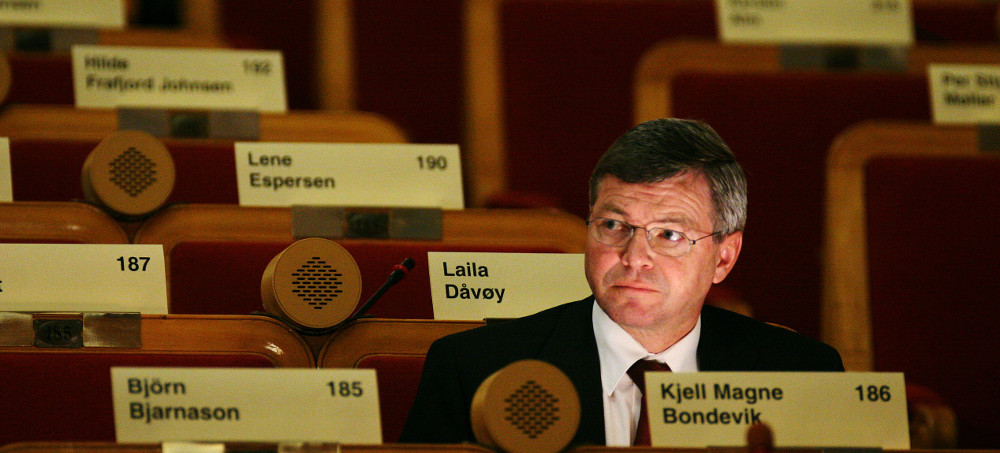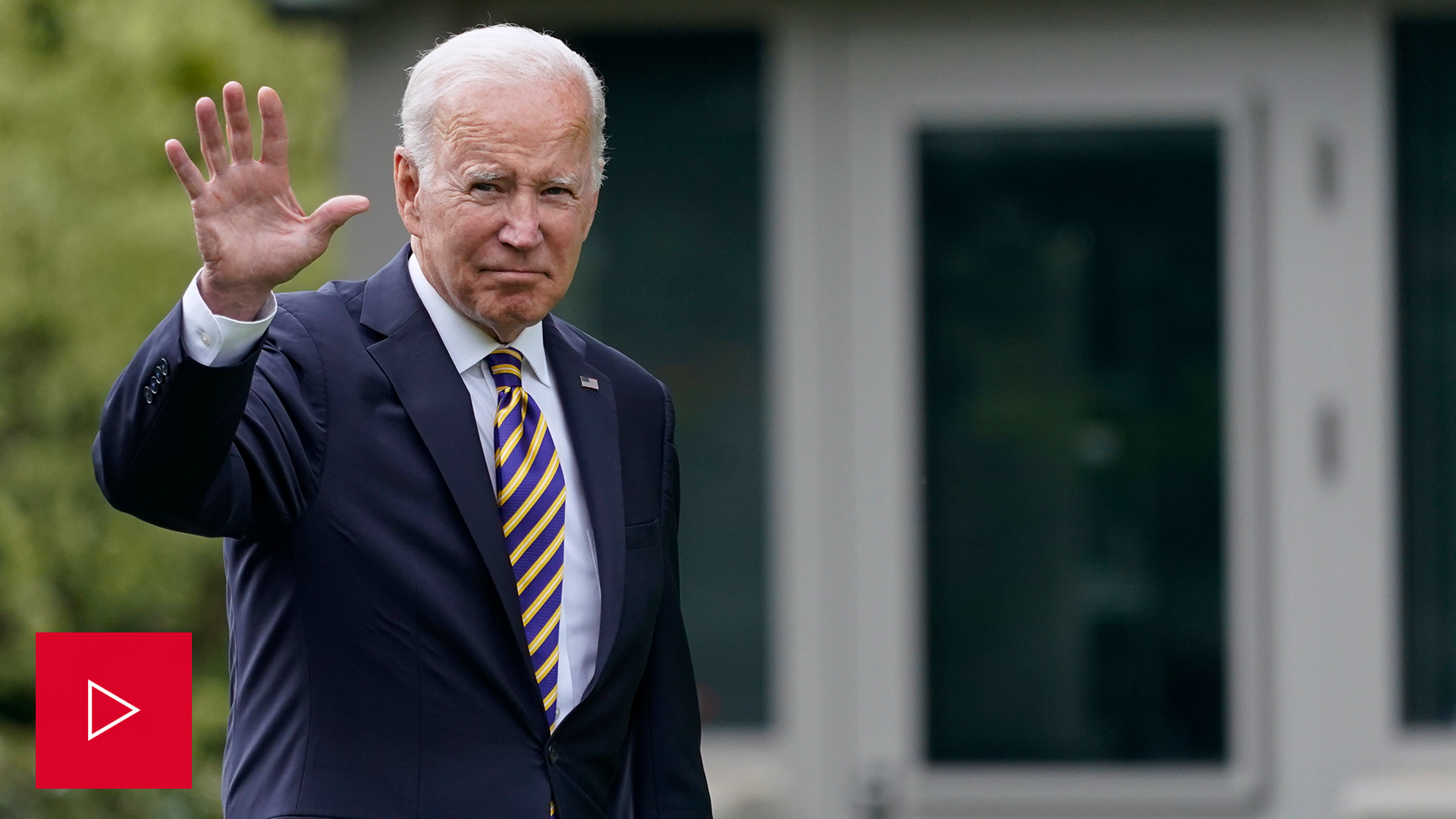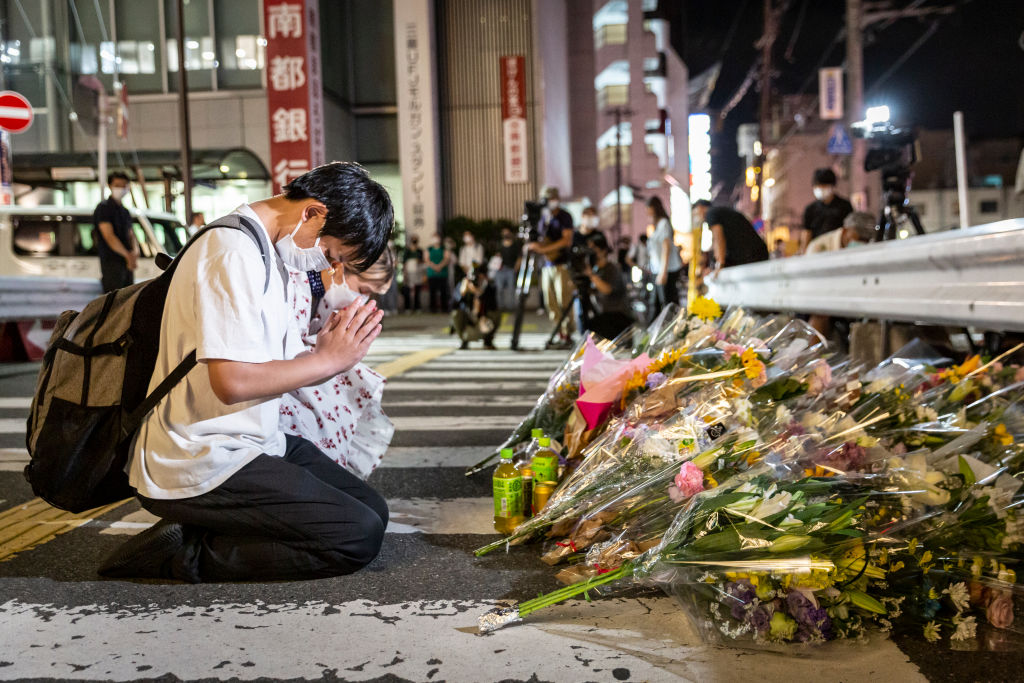Live on the homepage now!
Reader Supported News
“If you are angry today, I’m here to tell you to be angry. I’m furious. I’m furious that yet more innocent lives were taken by gun violence.”– Illinois Governor JB Pritzker, in the wake of the July 4 mass murder at a Highland Park Independence Day parade.
How leaders deal with anger — their own and the population’s at large — has helped shape the course of human history. Anger can be stoked, and it can be quelled; it can be channeled, and it can burst forth uncontrollably. It can be marshaled to fix our problems, or it can be weaponized toward explosive violence and destruction.
We live in angry times. And this fervor is tearing at our national fabric. It cannot be ignored and explained away. It and its root causes must be confronted.
Much has been written about the anger Donald Trump tapped into and amplified in his rise to the presidency. The propaganda and lies that Fox News and other right-wing media outlets spew forth are meant to keep viewers engaged through anger. Much has been made of the grievances, real and imagined, of Trump voters who say they have been left behind. Of course, we should never overlook the long shadow race continues to play in deepening the societal fissures that have been ripe for exploitation.
But anger is not limited to one side of our political divide. And I don’t think the role it has played in the forces opposing Trump and the broader Republican movement has received enough attention, although that is starting to change.
In electing Joe Biden to the presidency, America chose in overwhelming numbers a man whose political identity is the antithesis of a hothead. Here is a man who has faced unspeakable personal tragedies and maintained, at least in his public persona, a seemingly unquenchable optimism.
For all the differences between our current president and the man with whom he served as vice president, both President Biden and President Obama have been seen as steadying figures whose natural instinct is to calm rather than enrage. And to calm is a critical role of a president — except when anger is required. It is a delicate balance, but one that is necessary for both the governance of the nation and a president’s personal political fate.
A large swath of the electorate hoped that after the chaotic presidency of Donald Trump, America could return to a more tranquil path. To be sure, a deep current of anger has remained on the political left at myriad social ills — from racial injustice to income inequality to the assault on our democracy. This is natural and important. But at the political process level, there was hope among many Democrats and their supporters that with congressional majorities — desperately slim as they may have been — and the presidency, progress could be possible.
We don’t need to rehash in detail all that has transpired since Election Day 2020. It’s enough to say that whatever anger existed on the political left a few years ago has only magnified, and in recent weeks it has exploded in intensity, driven by still more mass shootings, grim revelations about the insurrection, and the Supreme Court's multiple extremist rulings, including throwing out the constitutional protections for women to determine the fate of their own bodies.
Naturally, much of the fury has been directed at the justices and other Republican politicians who are the lead actors of regression. There has also been ongoing fury at Democratic Senators Joe Manchin and Kyrsten Sinema for refusing to get rid of the filibuster for voting rights, gun regulations, or abortion rights. But increasingly, that ire has also been directed at President Biden, members of his administration, and other senior Democratic leaders in the House and Senate.
The politically savvy understand that there is little President Biden can do legislatively with the current membership of the Senate. But there is a general sense that he is failing to grasp the urgency and desperation of the moment. In short, why isn’t he angrier? With so much at stake, with such intransigence on the part of the Republicans, with the justices taking away existing rights, with an anti-democratic movement swelling at the state level, why doesn’t President Biden sound like Illinois Governor JB Pritzker, whose quote began this post?
I suspect that for many Democrats, it feels as if the president isn’t hearing them. It’s not like the anger is hidden from view or wasn’t predictable.
We have written many times in this forum about the headwinds Democrats face in the midterm elections, but we have also said that a mobilized response to outrages such as the abortion ruling can shuffle the dynamics. In this formulation, anger is the motivating force that allows the party to potentially hold the House and gain seats in the Senate, as improbable as that outcome might seem at the moment.
Are President Biden and other Democratic leaders out of step with where a large part of the country is? Will this tone doom the party’s chances in November? Or, as many of their supporters suggest, is this Democratic infighting and criticism counterproductive?
Perhaps Biden will grow angrier in his statements, especially as the criticism intensifies and the midterms draw near. Perhaps he will stand back and let the candidates on the ballot run on anger, including, if necessary, anger at him for not doing enough.
In the end, the only long-term salve is for there to be results. Action can quench anger. That requires political power. And that will mean winning elections. At this point, it seems to many that harnessing Democratic anger is the party’s best chance at beating the odds.
Are you angry? Do you think that anger should direct the Democrats' election efforts? Do you wish the president and others were angrier? Or do you think that there is enough anger out there and so a calm demeanor is the best response to holding the nation together on a road to progress?
Look up his classmates. Both Hillary Clinton and Robert Reich went to law school with him. Robert Reich recently commented and I can't easily locate the article, but he said Hillary was always asking questions, prepared to comment and Clarence Thomas was mostly silent.
There have always been suggestions that his admission was 'affirmative action' which explains his hatred of the provision. Read about his history. His family didn't have the $$$ to provide the education he received.
When he was head of EEOC, there were a lot of complaints about its failures and backups of complaints that you can surely find elsewhere.
excerpt:
"Thomas chaired the EEOC from 1982 to 1990. Journalist Evan Thomas once opined that Thomas was "openly ambitious for higher office" during his tenure at the EEOC. As chairman, he promoted a doctrine of self-reliance and halted the usual EEOC approach of filing class action discrimination lawsuits, instead pursuing acts of individual discrimination.[52] He also asserted in 1984 that black leaders were "watching the destruction of our race" as they "bitch, bitch, bitch" about Reagan instead of working with the Reagan administration to alleviate teenage pregnancy, unemployment and illiteracy.[53]"
https://en.wikipedia.org/wiki/Clarence_Thomas
Hillary Clinton Says Justice Thomas Was a ‘Person of Grievance’ and ‘Anger’ When They Were at Yale Law, Believes ‘Women Will Die’ as a Result
AARON KELLERJun 28th, 2022
In an appearance on CBS Mornings, former presidential candidate and Secretary of State Hillary Clinton (D) shared several of her personal opinions about Justice Clarence Thomas in the wake of the Supreme Court’s decision on Friday to overrule Roe v. Wade.
When asked by host Gayle King about Thomas’s concurring opinion to “reconsider past rulings on contraception and same-sex marriage,” Clinton verbalized her thoughts of Thomas dating back to the days they were both in law school.
“Justice Thomas has sort of floated this out there about contraceptive rights — contraception — and about same-sex marriages, but other justices have pushed back to say, no, he’s really sort of on his own with that,” King asked Clinton. “You don’t believe that?”
“He may be on his own, but he’s signaling — as he often did — you know, people — I went to law school with him,” Clinton answered. “He’s been a person of grievance for as long as I’ve known him. Resentment. Grievance. Anger. And he has signaled, ah, in the past to lower courts, to state legislatures — find cases, pass laws, get them up. I may not win the first, the second, or the third time, but we’re going to keep at it.”
“So you’re saying people people pay attention to this?” King continued in a clip from the broadcast posted online by CBS.
“Yes,” Clinton replied. “The people he is speaking to, which are the — you know — right wing, very conservative judges and justices and state legislatures. And the thing that is — well, there are so many things about it that are deeply distressing — but women are going to die, Gayle. Women are going to die.”
Clinton graduated from Yale Law School in 1973; Thomas graduated from the same institution in 1974.
Clinton’s comments stand in stark contrast to those of fellow SCOTUS Justice Sonia Sotomayor, who recently extolled Thomas’s virtues as a friend at a speech before a liberal legal group:
Justice Thomas is the one justice in the building that literally knows every employee’s name. Every one of them. And not only does he know their names, he remembers their family names and histories. He is a man who keeps — cares deeply about the court as an institution, about the people who work there, but about people. That’s why I can be friends with him and still continue our daily battles over our difference of opinion in cases.
Thomas has posited that so-called substantive due process — the legal theory that the word “liberty” in the Fourteenth Amendment is a wellspring of fundamental rights not fully articulated or described elsewhere in the Constitution — is “an oxymoron that lacks any basis in the Constitution.” He has suggested that some rights currently enshrined in the Court’s substantive due process might — or might not — find homes in other portions of the Constitution. That’s if future litigants prime the pumps of the judicial system and tee up the correct plaintiff and the correct facts for such a review.
Abe, 67, was stumping for a fellow politician from the ruling Liberal Democratic Party (LDP) in Nara, near Osaka, on Friday morning when a gunman opened fire with what police described as a homemade gun.
Hidetada Fukushima, head of the emergency center at the Nara Medical University Hospital, said Abe had no vital signs when he arrived there at 12:20 p.m. Friday. Despite efforts to save him, including a transfusion, Abe died of blood loss less than five hours later.
The assassination of Japan’s longest-serving prime minister, and a staunch U.S. ally, sent shock waves throughout the country ahead of elections for the upper house of parliament on Sunday.
Police arrested a suspect, a 41-year-old man from Nara named Tetsuya Yamagami, and seized a gun. Yamagami was a member of the Japan Maritime Self-Defense Force for three years, defense officials told Japanese media.
Footage of the event showed that while Abe was giving a speech, one gunshot was fired from behind him, creating a plume of smoke. He turned around and looked over his left shoulder and then a second shot was fired, with another plume of smoke. Abe fell forward to the ground and the gunman was apprehended.
Doctors said there were two wounds on Abe’s neck area, near his chest. According to Nara police, the second gunshot caused both wounds, raising questions about what type of gun and ammunition were used.
Videos showed a chaotic scene with Abe, unmoving, lying on the ground as attendees yelled for an ambulance.
Yamagami admitted to attempting murder, and said he wanted to attack Abe because he believed Abe was connected to a group that he hated, police said, declining to name the group. Police found multiple hand-made guns at Yamagami’s home. The gun he used Friday was nearly 16 inches long.
Abe, who came from a prominent political family, was the youngest person to become prime minister of postwar Japan. His popularity soared after he resigned from office in 2020, and he remained a power broker who frequented campaign events to support other LDP politicians.
At an emotional news conference after Abe’s death, Prime Minister Fumio Kishida praised his former colleague as “a dear friend who loved this country.”
“To lose such a figure in this manner is absolutely devastating,” he said.
Kishida said Sunday’s upper house election would continue as planned but with enhanced safety measures, saying it was important to protect the democratic process and not allow violence to change its course.
“Elections are the foundation of democracy, which we must defend. We cannot give in to violence. For this reason, we will continue to fight the election campaign until the very end. I hope the people of Japan will think about and work hard to protect this democracy,” Kishida said.
Earlier, appearing close to tears, the prime minister described the attack as a “despicable and barbaric act.”
Japanese media reported that the suspect had told police that he was frustrated with Abe and aimed his firearm with the intent to kill the former conservative leader.
Abe oversaw a period of relative stability as prime minister from 2012 to 2020, raising Japan’s global image and emphasizing a strong alliance with the United States, even as then-U.S. President Donald Trump tested long-standing relationships with allies. The pair forged a close personal relationship and often played golf together.
But as a Japanese nationalist, Abe was sometimes a polarizing figure. He made several visits to the Yasukuni Shrine, a memorial that recognizes war criminals, among others, prompting fury from some of Japan’s neighbors, especially China, that suffered under the country’s imperial militarism.
Abe focused on reviving Japan’s stagnating economy through a package dubbed “Abenomics,” and he sought to expand Japan’s military defenses. Controversially, he tried to modify the country’s pacifist postwar constitution; even after leaving office, he continued to push for Japan to increase its defensive capabilities, most recently suggesting after Russia’s invasion of Ukraine that Japan should discuss a nuclear “sharing” program similar to NATO members.
Earlier, Abe had led the country from 2006 to 2007 but stepped down because of chronic ulcerative colitis, the same condition that led to his resignation in 2020.
Abe’s maternal grandfather, former Prime Minister Nobusuke Kishi, survived an assassination attempt in 1960 when he was stabbed in the thigh during a reception at the Prime Minister’s office.
Foreign leaders expressed sympathies as they reacted with horror to the events in Nara.
In a statement before Abe’s death, the White House said it was “shocked and saddened to hear about the violent attack.” “We are closely monitoring the reports and keeping our thoughts with his family and the people of Japan,” it said.
China’s Foreign Ministry extended condolences to his family. Taiwanese President Tsai Ing-wen said Abe was “not only my good friend, but also Taiwan’s most staunch friend.” British Prime Minister Boris Johnson said he was “utterly appalled and saddened.” Indian Prime Minister Narendra Modi said he was “deeply distressed.” The Kremlin said it “strongly condemned” the attack on “a patriot who defended Tokyo’s interests.”
There has not been an attack against a Japanese politician in many years. In 2007, Ito Itcho, the mayor of Nagasaki, died after a gunman shot him. Before that, a gunman fired at Prime Minister Morihiro Hosokawa at a hotel in 1994, but he was unharmed.
Kishida, who was campaigning in Yamagata when the shooting occurred, canceled his campaign schedule Friday and headed back to Tokyo.
Firearms are strictly regulated in Japan, and gun violence is most often associated with the yakuza, the Japanese criminal network. Last year, eight of the 10 shootings in Japan were related to the yakuza, according to the National Police Agency, resulting in one death and four injuries.
Anyone trying to obtain a gun in Japan needs to apply for a permit, attend a class on gun safety and laws, and pass a written test. There is a full-day training course on safe shooting and practicing techniques. There are multiple rounds of checks and verification on the gun owner’s background and health, including information about their family, mental health, personal debt and criminal record. The gun must be registered with and inspected by police.
Follow us on facebook and twitter!
PO Box 2043 / Citrus Heights, CA 95611










